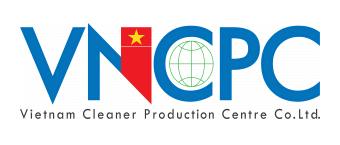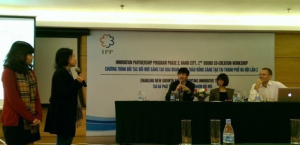IPP offers funding grant to Vietnam’s startups & incubators
Vietnamese startups and incubators will have an opportunity to receive a grant of up to 300,000 Euros ($316,120) and 200,000 Euros ($210,750), respectively, from the Innovation Partnership Program (IPP), as part of their second round of funding.
A promising startup can get up to 30,000 euros ($31,612), while an effective incubator will be supported with the maximum amount of 50,000 euros ($52,670) for the initial round The companies are meant to use the money to pay for human resources and/or research costs.
Notably, the grants are not subjected to refund or any equity/ownership of the companies.
The IPP program, jointly developed by the Finnish government and Vietnam’s Ministry of Science and Technology, has attracted some 200 Vietnam-based startups after calling for an ‘expression of interest’ across four cities in Vietnam, Hanoi, Ho Chi Minh City, Da Nang and Can Tho.
About 40 startups from Hanoi, pitched their ideas at an IPP program, this morning. Meanwhile, the grant call is expected to be announced in a couple of weeks’ time.
Until then, IPP will assist the startups with mentoring and incubating, in both management expertise and networking with investors.
“When the grant call opens, we will stop our assistance to assure fair competition between the young companies,” said Riku Makela, senior advisor for the program.
This year, the IPP looks for support 20 to 30 projects regardless of the nationality of the startup owners, as long as they are registered in Vietnam and have the potential of global expansion.
To be eligible for IPP funding, the startups must show a plan stating clearly the solution provided and the benefit to the customers, their competition and alternatives, and the resources linked to the core teams as well as their networks.
According to Nguyen Trong Nghia, e-commerce advisor and founder of online travel platform bizigo.vn, this is a huge opportunity for Vietnamese startups to get to know how they can develop in an early stage before entering any funding calling round. “Many startups collapse before they could get seed funding,” he said, adding that startups really need money but also need a mentor.
The majority of Vietnamese startups are founded by information technology engineers or marketing professionals, who often lack comprehensive expertise in doing business, Nghia said.
While the size of Vietnam-based incubators and accelerators is still small, Makela thinks they could join hands to offer more support to startups.
Source: www.dealstreetasia.com



